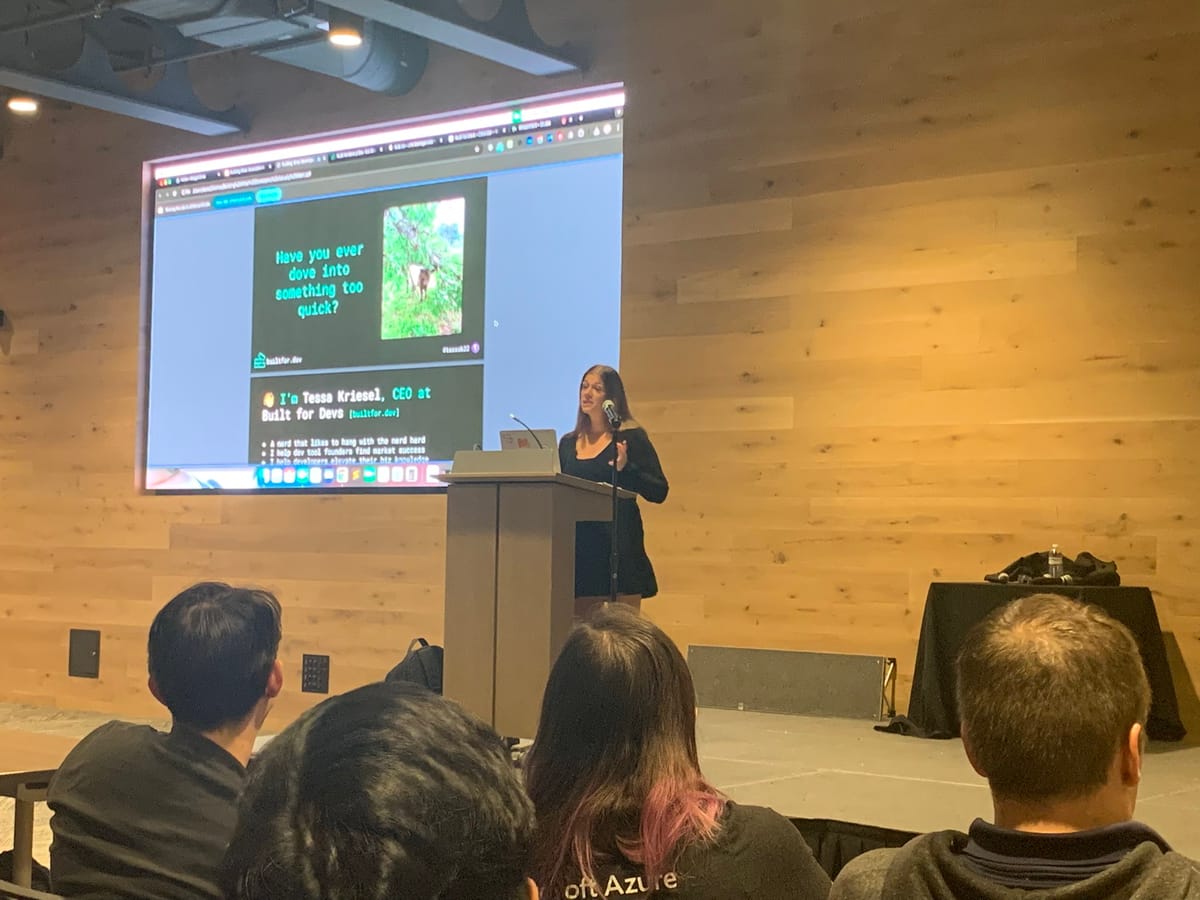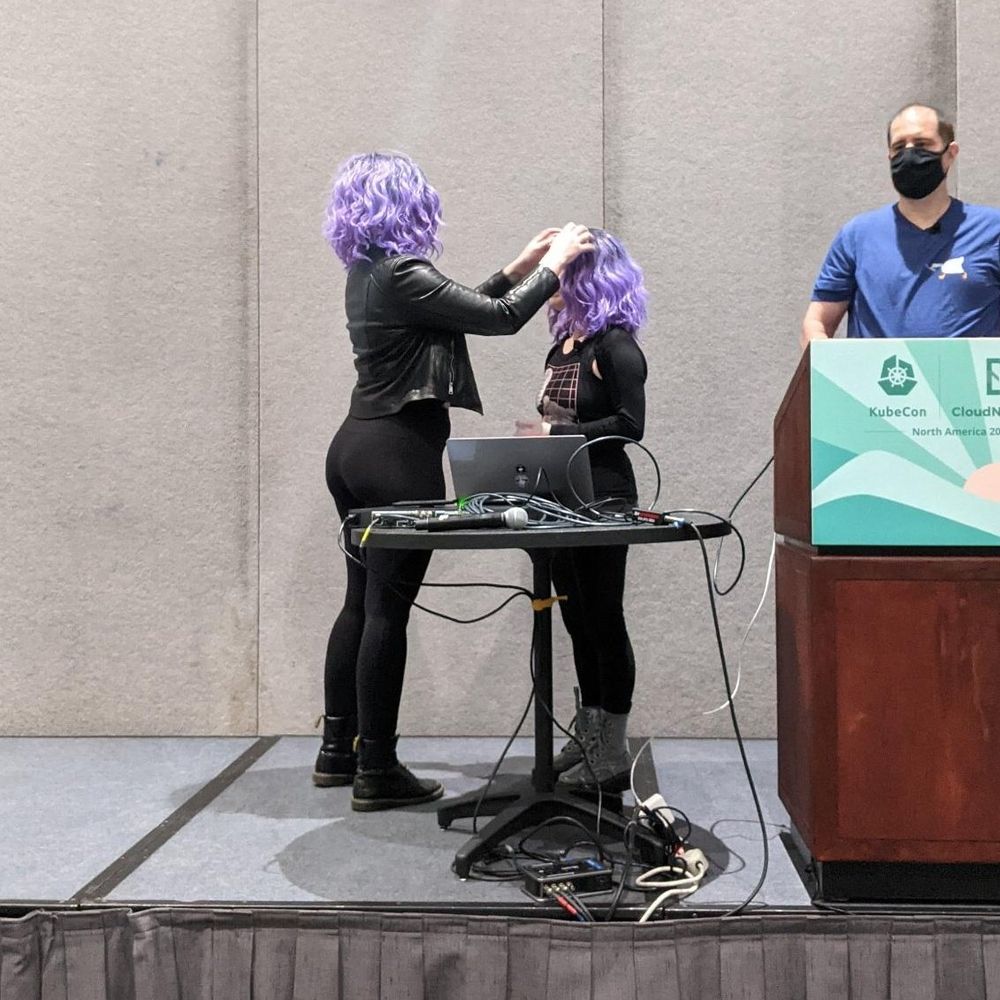Between and I took 8777 steps.
IndieWeb post types
This content type is full of IndieWeb post types, which are all content types which allow me to take greater ownership of my own data. These are likely unrelated to my blog posts. You can find a better breakdown by actual post kind below:
Post details
my name is `adduser` and my brother's `useradd` one of us is good and one of us is bad! which of us is which? there is no way to know we change names sometimes to keep you on your toes!
Post details
Simon Willison joined Bryan and Adam to discuss a recent article maligning open source large language models. Simon has so much practical experience with LLMs, and brings so much clarity to what they can and can’t do. How do these systems work? How do they break? What are open and proprietary...

Post details
where the fuck did the name dildo come from that’s a weird word. I bet it’s the british
Post details
Heather Meeker, one of the world's foremost experts on open source license compliance, discusses the AGPL and its provisions covering network deployment.

Post details
Discover how a transformative year shifted from leading developer relations at Snapchat to founding Built for Devs. Explore my journey and the insights that shaped a new approach to supporting technical founders.

Post details
Light snow just starting in ng12 #snow #uksnow uksnowmap.com
Between and I took 4573 steps.
I've got a meta page for all my feeds but https://www.jvt.me/kind/articles/feed.xml is probably the main one that folks are interested in!
Post details
This holiday period has been great for three things: - Got plenty of rest - Radicalised against the neo-liberal oppressors and their ideology of capitalism which is a cancer destroying the planet and our civilization - Got some new socks
Post details
Attached: 1 image Spent the last Saturday of my vacation fixing the build time on my site. It was originally at 19m 😱 but now it's down to 1m10s via the judicious use of caching. 💥 All running on my own Gitea infra on my apartment's server. The vast majority of the uncached build time was due to producing the social media cards for each page, and scrubbing exif data from files. #SelfHosted

Post details
Hey fellow writers with ADHD, you should join us at adhdwriters.com! Super excited to launch this project and build a community of neurodivergent writers. Free bi-weekly newsletter and for paid members of the community we’ll have monthly body-doubling and live Q&As. Come join us!
Post details
Attached: 1 image @cjk how ironic lol

Post details
Finally someone solved it! https://getfullyear.com/
Post details
Know Their Names: Palestinian children killed in Israeli attacks on Gaza https://interactive.aljazeera.com/aje/2024/israel-war-on-gaza-10000-children-killed/
Post details
Attached: 1 image Can't tell if this is a weird translation mistake or the most fuckin balls to the wall inspirational quote I've ever seen

Post details
Happy anniversary to the time I was Ian Coldwater, ultimately resulting in half of Tech Twitter being me being Ian and one mixup on Wikipedia

Post details
People still pretend to mix us up in person, which is fun because IRL I'm nearly a foot taller

Post details
this is so sad but there’s legitimately nothing hotter than someone new I meet consistently and effortlessly getting my pronouns right
Post details
Happy New Year, everyone!Visit cupogo.dev to buy Swag🇮🇪 Go Ireland relaunch - tcube Dublin on Feb 6th.🦀 Rust GOes Async on Alexander Fadeev's blogHello Internet podcast🗳️ Go Developer Survey 2024 H2 Results🗣️ Best practices of using Go and Prometheus in Kubernetes environmentWails: YouTube video...

Post details
Retirement is about the journey, not the destination. For Kelsey Hightower, it’s been an epic journey. On our debut episode of the Fork Around and Find Out Podcast (and much to Autumn’s elation), Kelsey joins us to run down his illustrious career that spans a quarter of a century.Known for...

Post details
Sunrise fuji

Between and I took 4268 steps.
Post details
my wife got a promotion that is being followed up with another temp promo that will hopefully become permanent and she’s going to have a higher base salary than me the fact that this bothers some men is so, so baffling it’s great! she deserves it! I’m proud of her! what is wrong with people
Post details
I use “straight” and “normal” as slurs btw
Post details
https://bsky.app/profile/elchefe.me/post/3leagxkp3j22i [contains quote post or other embedded content]
Post details
Meetings that start at half-past and run for an hour should be banned
Post details
Well well well, if it isn’t the consequences of your actions
Post details
It takes more than great code to be a great engineer. Soft Skills Engineering is a weekly advice podcast for software developers about the non-technical stuff that goes into being a great software developer.
I thoroughly enjoyed working with Andy to design a project logo for an Open Source project I've been building.
Wanting to work with a real human and get their experience and breadth of ideas, Andy was a great choice, having been recommended by a connection on social media, and helped me unpick what I wanted out of the logo, providing several avenues for design choices before honing in on the final design, which I was super happy with.
Andy was great to work with, provides a wealth of experience and knowledge and was great to work with. I really enjoyed the usage of both synchronous discussions (over video call) and using Miro for asynchronously describing the design decisions in each iteration of the design, allowing me to hear his thoughts (rather than just read them over email) and respond to them in kind.
I've recently started a second project with Andy, and can definitely foresee using his services again!
Post details
As the first (short) work week of 2025 wraps up, I found myself staring down some BIG personal and professional goals and feeling a little overwhelmed. In trying to calm myself down, I stumbled across an old presentation I gave called “Don’t P.

Post details
Selling your mattress? If it’s memory foam make sure to reformat it so an unscrupulous buyer can’t access your old dreams
Post details
Attached: 1 image the bee movie

Post details
Good to be beside the sea and soaking up the first sunny day of 2025 https://calumryan.com/notes/3704

Being fortunate and not getting sick during the pandemic (yay social distancing and masking!) and I got sick over the holiday period and dang it sucks to be ill, I can't believe it used to be way more often in the past 😷🤒
Post details
UnitedHealth CEO was killed 30 days ago on December 4. Luigi is now on trial Lancet reports that USA’s exploitative health system enables 68K preventable deaths ANNUALLY. 5589 Americans have died under this system since December 4. So—when do the CEOs who knowingly enabled these deaths go on trial?
Post details
my current feelings

Post details
Exactly 5 years ago today, @kaylapekkala.bsky.social and I got Tater Tot. He was so tiny!

Between and I took 5272 steps.
Post details
"I got ADHD rabbit railed" #thePerfectTypo
Post details
Attached: 1 image I'm very excited to share that 'Batch Bunch' is LIVE. "Nottingham's newest, in-person tech meetup. Come along to build your side-projects in a community of ambitious, like-minded folks." ⌨️🖱️🌐😌☕ This project started out with a random thought and, then, very quickly, a solid conviction. I'm excited, again, to be wearing many hats (designer; dev; vibes curator; social media yapper etc. 😜) with @www.jvt.me@www.jvt.me in making BB—with your support—a lasting success for Nottingham 💛 https://www.batchbunch.dev/blog/welcome-to-batch-bunch

Post details
batchbunch.dev is LIVE Meet Nottingham's newest, in-person tech meetup. Come along to build your side-projects in a community of ambitious, like-minded folks. ⌨️🖱️🌐😌☕ Ran by: @rizwanakhan.com and @www.jvt.me.web.brid.gy
Post details
It’s a new year and time for some changes to the opensourcesecurity.io website. It's time to retire the podcast, but that's to make way for something new and hopefully better. You can read the details in the blog post (the audio version is basically the same thing) https://opensourcesecurity.io/posts/2025-01-the_future_of_open_source_security/

Post details
<p>The very likable and grounded Randall Park joins Ted Danson to talk about his action figure, facing rejection early on in his career, almost getting c—kblocked when he met his future wife, how parenthood diminishes your ego, making his directorial debut with “Shortcomings,” and more.</p><p> </p><p>Like watching your podcasts? Visit <a href="http://youtube.com/teamcoco">http://youtube.com/teamcoco</a> to see full episodes. </p>

